The convergence of artificial intelligence (AI) and biotechnology is rapidly transforming innovation. AI-biotech hybrids are driving breakthroughs in medicine, agriculture, and environmental sustainability by harnessing AI’s power to design and optimize biological systems. But as we approach 2025, questions arise: Will AI outpace human-driven innovation? This article explores how AI is revolutionizing the biotechnology industry.
What Is Synthetic Biology
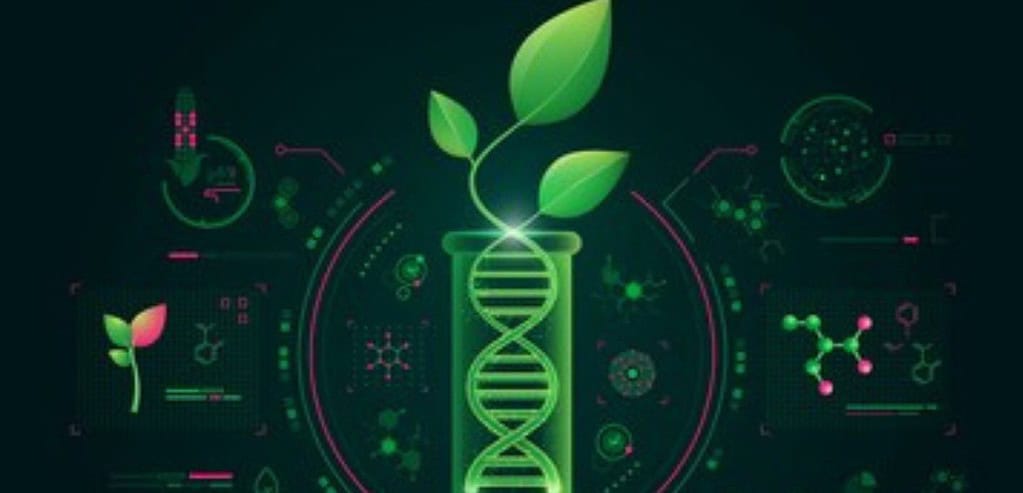
Synthetic biology is an interdisciplinary method that integrates engineering principles into the study of biology, this integration aims to enhance design and build new biological parts, devices and systems or even simply redesign the existing ones for better utilization. It combines knowledge from biotechnology, molecular biology, and engineering to build organisms with more novel functions.
How AI Is Revolutionizing The Biotech Industry
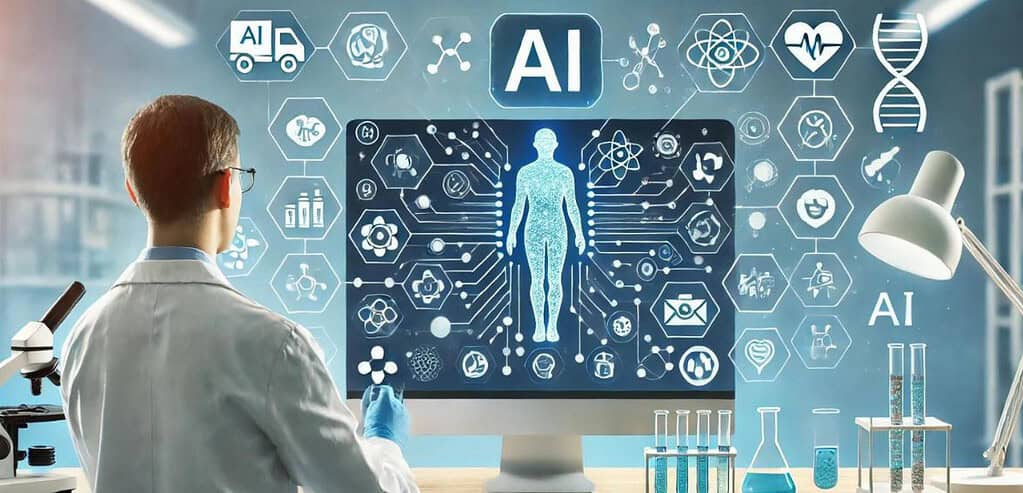
Diagnosing and Treating Mental Illness
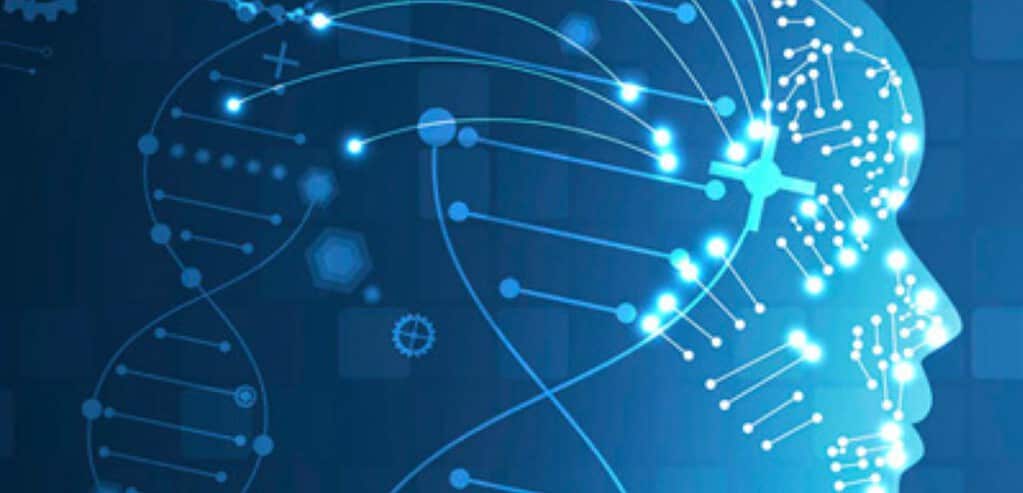
In recent studies, it has been seen that 13% of the global population is affected by mental health issues such as depression and anxiety, during COVID 19 depression cases have drastically surged. With the help of AI in mental health illness medical professionals can detect early symptoms of mental illness more accurately, enabling faster prevention of treatment and personalized therapies.
AI advanced algorithms easily analyze the brain waves to recommend accurate antidepressants to patients. Not only this AI is used to analyze the addictive pattern and predict early relapses allowing real-time interventions. Additionally, AI helps in developing personalized medicine enhancing the scope of treatments.
Creating 3D Protein Structures
Proteins are essential for better health, but accurately identifying their structure by utilizing old methods of X-ray crystallography is not only time-consuming but also slows down the treatment process. With the help of AI, it is now easier to predict protein structures more quickly leading to revolutionizing drug development. This allows professionals to quickly track critical proteins faster helping in the treatment process of diseases like cystic fibrosis and muscular dystrophy.
Gene Coding Identification
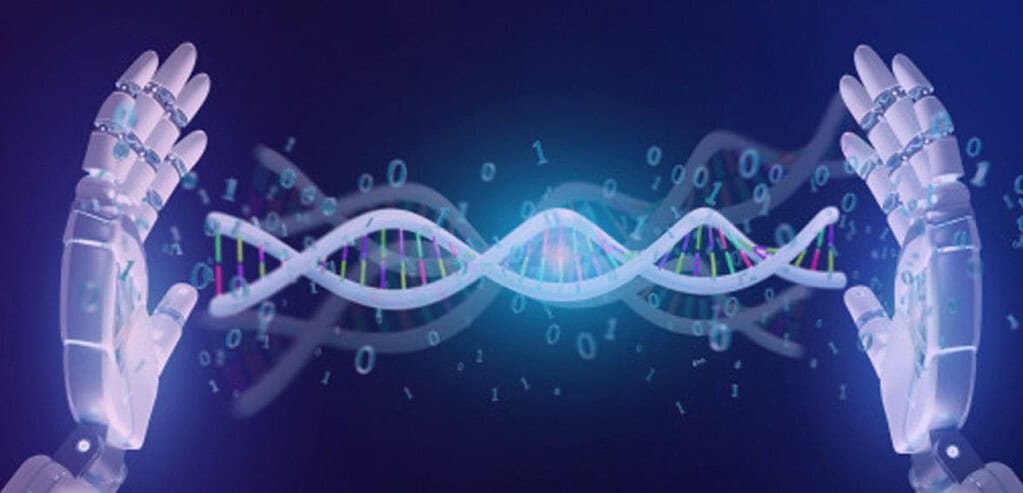
AI is revolutionizing genomic research by allowing quicker gene sequencing and a more accurate understanding of human genetics study. CRISPR, an advanced gene-editing tool, enables precise DNA modifications, helping to eliminate various disease-causing genes. It also fosters personalized medicine by offering treatment to patients’ genetic makeup.
Lab Assistant
AI as lab assistants play an essential role in the biotech industry by easily streamlining complex tasks. It acts as a lab assistant by helping manage tedious tasks like data analysis, enabling professionals to focus more on high-value strategic activities.
Ethical Risk of Synthetic Biology
Environmental Risks
One of the major issues of synthetic biology is its ability to directly impact the environment, especially when synthetic or genetically modified organisms (GMOs) are released into the environment.
Unlike natural organisms, synthetic organisms are created with novel DNA sequences that may face conflict with natural species. This poses several challenges such as drastic environmental consequences, and horizontal gene transfer where synthetic genes may transfer to wildlife populations altering natural ecosystems.
Additionally, these engineered organisms might persist, reproduce, and spread within their environments causing unexpected environmental impact. There is also another possibility of synthetic organisms disrupting the ecosystem by competing with the existing natural organisms. To effectively address these consequences detailed environmental risk analysis is crucial before releasing any synthetic organisms into the ecosystem.
Dual-Use Concerns
Another major risk of synthetic biology is the potential biosecurity risks because of its dual-use nature. While its utilization promotes better medicine, agriculture, and environmental sustainability, it can also be misused for various harmful purposes such as bioterrorism.
Malicious actors could potentially use this technology to exploit engineered biological weapons or harmful pathogens, posing drastic risks to public health.For example, synthetic biology could be used to create more virulent viruses or antibiotic-resistant bacteria, leading to catastrophic consequences. This dual-use potential necessitates stringent biosecurity measures and regulatory oversight to prevent misuse.
The National Science Advisory Board for Biosecurity (NSABB) in the United States plays a crucial role in advising on biosecurity policies and dual-use research oversight to minimize these risks.
Risk Assessment and Regulation
Given the complexity and potential risks associated with synthetic biology, robust risk assessment frameworks are needed. One approach is the use of Bayesian networks (BNs) to evaluate the likelihood and impact of various environmental scenarios.
For instance, gene drive technology, which involves genetically modifying mosquito species to reduce disease transmission, exemplifies the need for careful risk assessment.Gene drive systems can spread a genetic trait, like sterility, rapidly through a population, potentially altering entire ecosystems.
Although this technology shows promise for controlling vector-borne diseases like dengue, its ecological impact is uncertain. There is a risk of unintended consequences, such as disrupting predator-prey dynamics or affecting non-target species. Therefore, risk assessments using Bayesian networks can help predict and mitigate potential adverse outcomes.
Why AI Can’t Replace Human Innovation
Lack of Emotional Intelligence
AI can process more faster and accurately but their limitations to emotional intelligence pose a major drawback. Humans can easily express emotions, show feelings like compassion and create relationships which is essentially for building stronger trust and loyalty.For instance, AI can generate human speech, and provide personalized treatment but it lacks personal communication with patients. Humans possess the skills of emotional intelligence which helps them to easily create connections and respond more rationally.
Absence of Creative Thinking
Even with numerous developments in Artificial intelligence it still somewhere lacks creativity, AI can easily generate tasks in a predefined framework but it may limit to thinking outside of the box. Human beings on the other hand possess the skills to think creatively for innovations. AI can help humans by assisting in complex time-consuming tasks with its automating features, enabling humans to focus more on a higher-value task that requires strategic planning and creativity.
Intuition and Gut Instincts
Humans have the creative skills of intuition which are shaped by their years of experience, knowledge, and subconscious thinking. This gut feeling enables them to make rational decisions even without complete data and information in critical situations. AI focuses more on data and logic and is limited to making a more instinctive quick decision that can allow bold innovations for success. Human instinct plays a crucial role in going beyond the boundaries and driving success whether it’s making strategic plans or taking creative leaps.
Dynamic Learning and Adaptability
Humans are more natural learners compared to AI and constantly adapt to new trends and challenges. They can easily work in a dynamic environment whether it’s generalizing knowledge across different fields or transferring skills to new tasks, unlike AI limitations to learn from specific algorithms. Humans are more creative and flexible in navigating unexpected complex situations. This adaptability is very crucial for innovation, as it enables people to reinvent themselves and find novel solutions.
Ethical Decision-Making
Innovation is not only about building new things but also about making more rational and ethical choices. Human beings are rational and can understand different social contexts, unlike AI’s limitations which follow a more programmed set of rules and lack the nationality to make ethical choices.
Conclusion
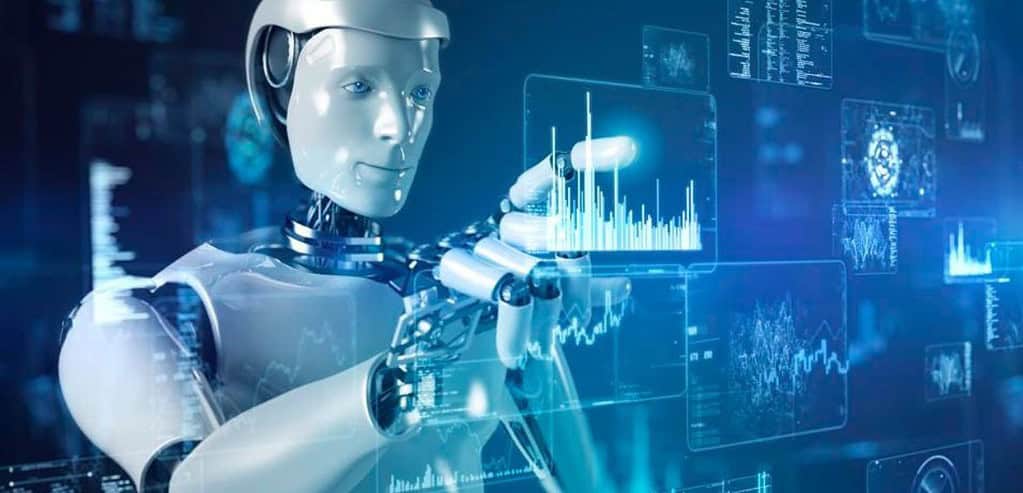
AI-biotech hybrids are revolutionizing the biotechnology industry, driving advancements in medicine, agriculture, and environmental sustainability. However, ethical concerns, environmental risks, and the limitations of AI, such as lack of emotional intelligence, creativity, and ethical reasoning highlight the irreplaceable role of human innovation. As we advance toward 2025, the future of synthetic biology will depend on finding a balance between AI-driven progress and human ingenuity, ensuring responsible and ethical innovation.



